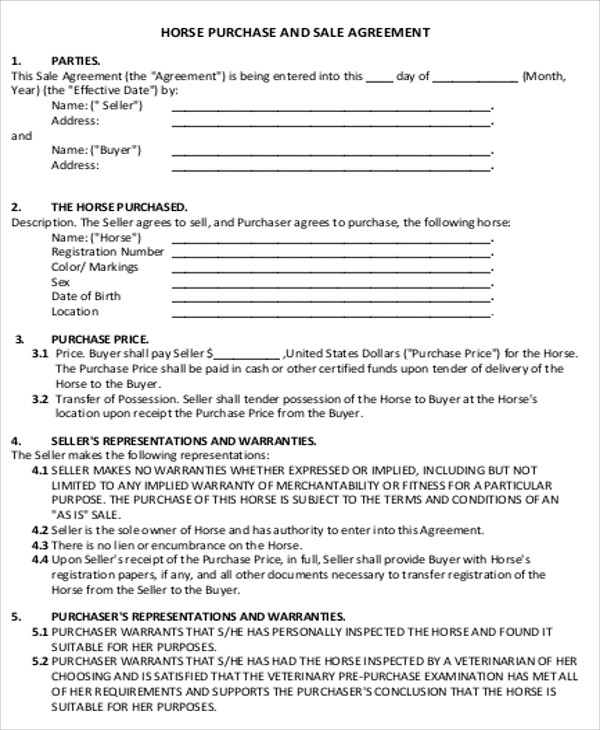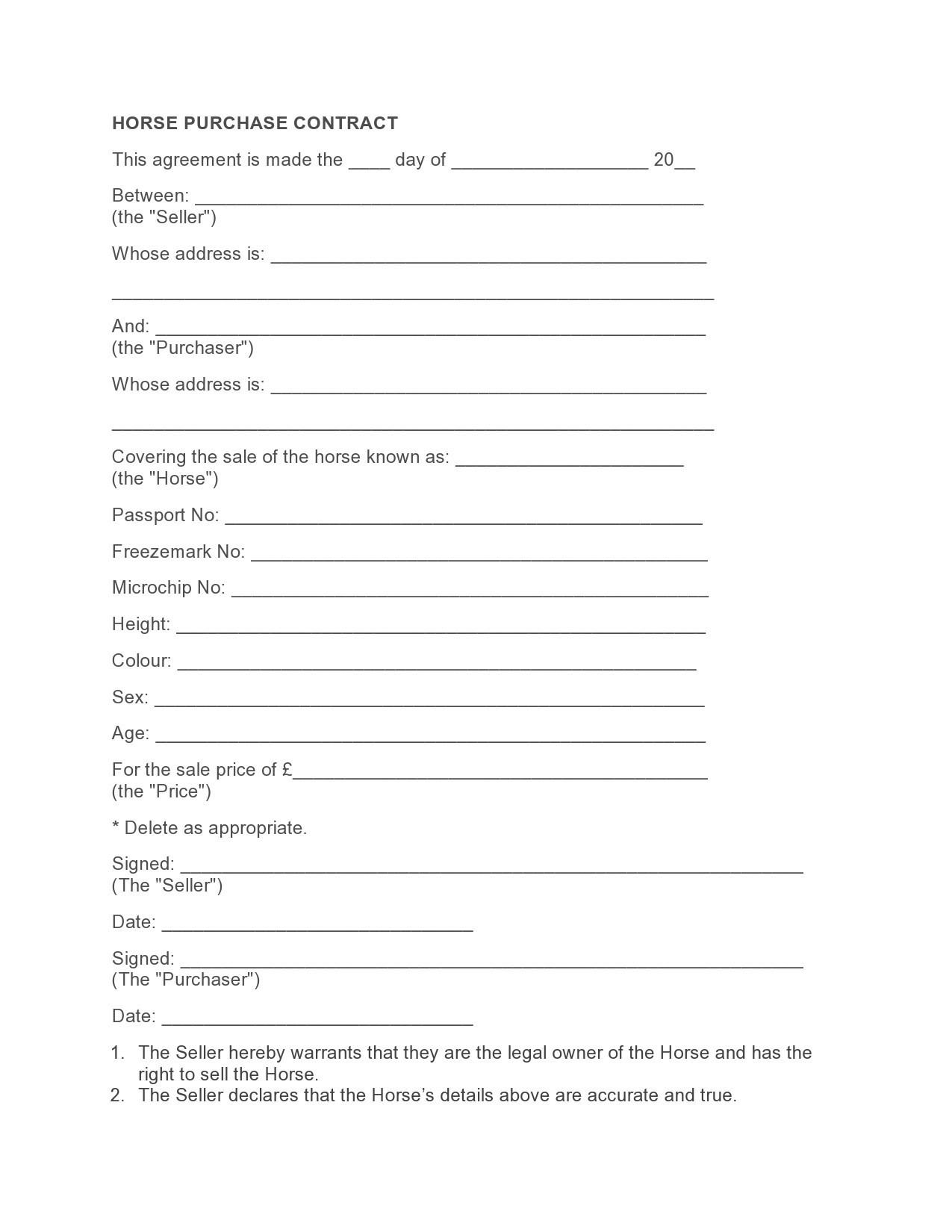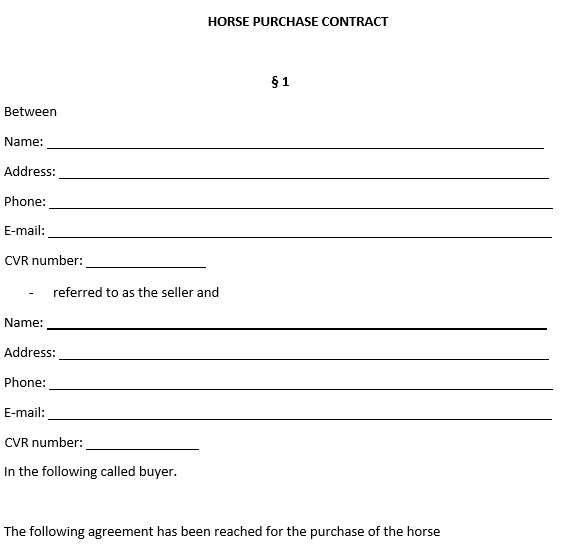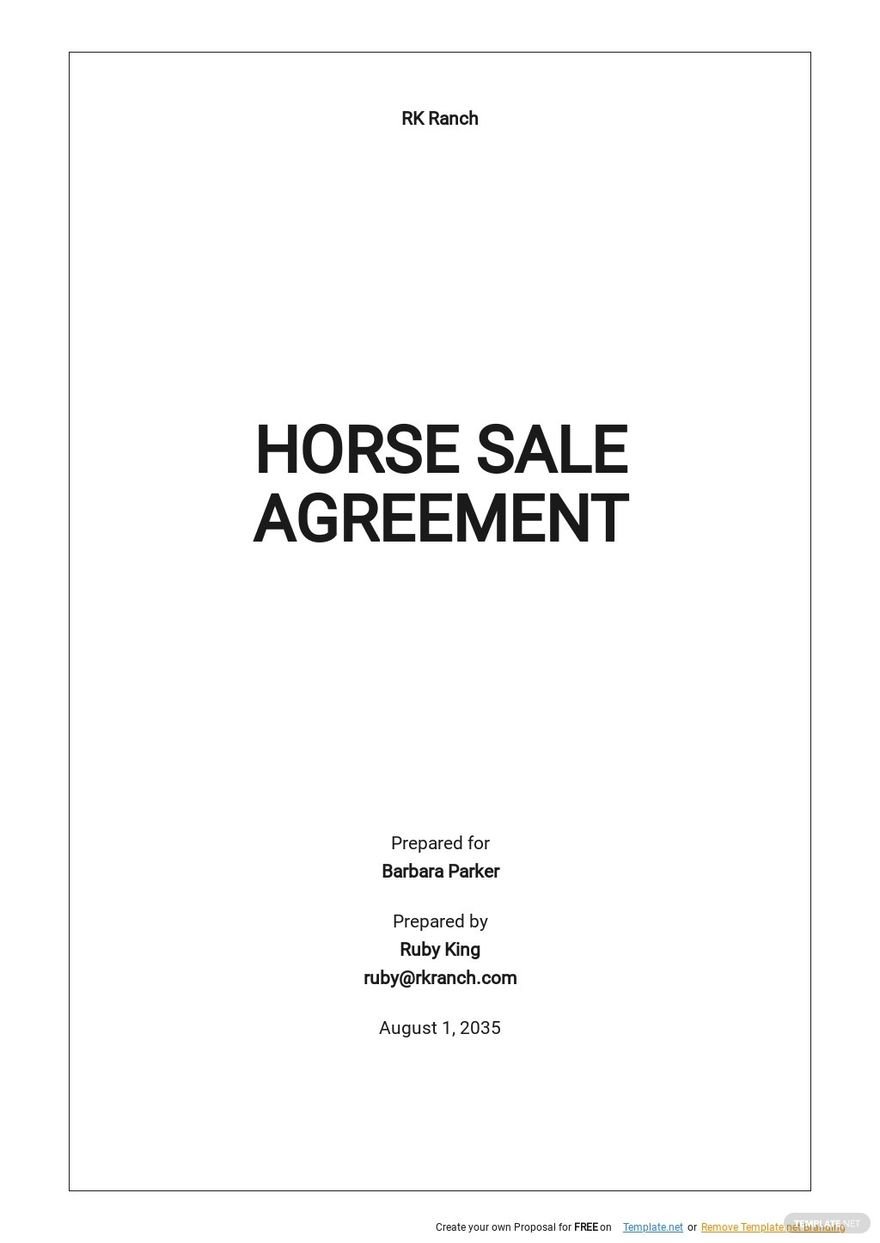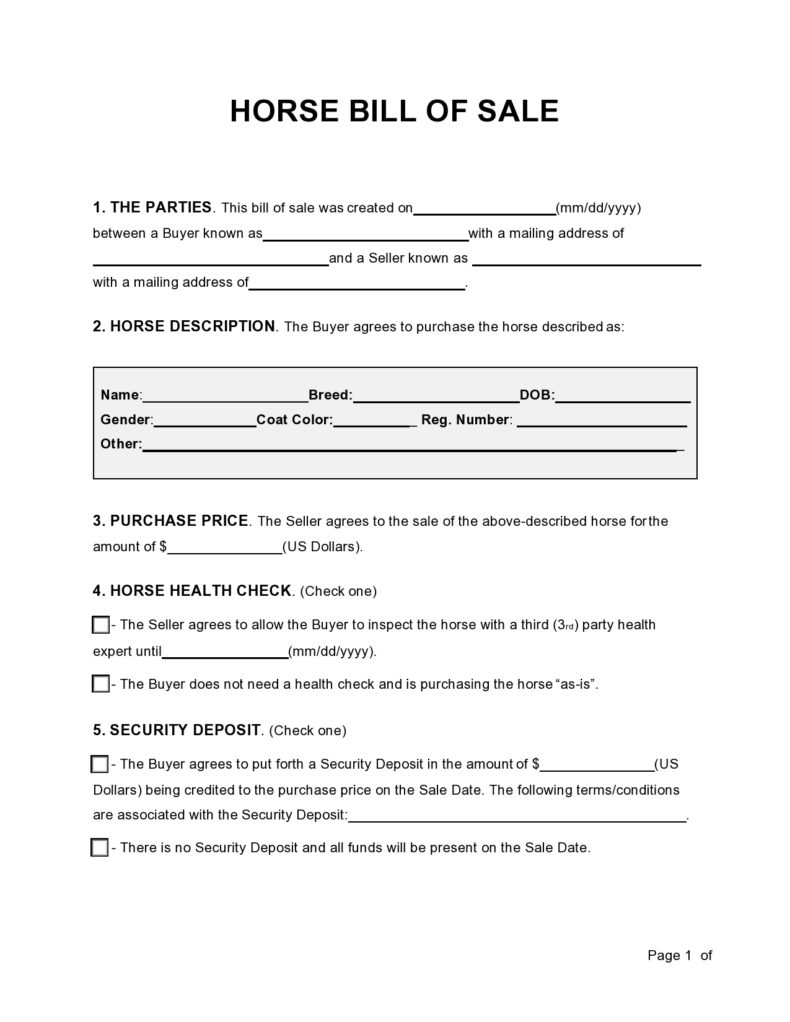The Horse Sale Contract Template You Need Right Now: Protect Yourself and Your Investment
Selling or buying a horse is a significant transaction, involving considerable emotional and financial investment. While the thrill of the deal might be tempting, neglecting the legal aspects can lead to costly disputes and heartache down the line. This is where a well-drafted horse sale contract becomes absolutely crucial. It’s not just a formality; it’s your shield, protecting both the seller and the buyer from potential misunderstandings and legal battles. This article provides a comprehensive overview of why you need a horse sale contract and offers insights into what should be included in a robust template.
Why a Horse Sale Contract is Essential
Think of a horse sale contract as the rulebook for your transaction. It clearly outlines the terms of the agreement, minimizing the potential for disputes and ensuring a fair and transparent process. Here’s why it’s vital:
- Clarity and Understanding: The contract explicitly defines the details of the sale, leaving no room for guesswork about the horse’s description, purchase price, payment schedule, and other crucial elements.
- Protection for Both Parties: It safeguards the seller by outlining payment terms and potential recourse if the buyer defaults. It protects the buyer by specifying the horse’s condition, warranties (if any), and remedies if the horse doesn’t meet the agreed-upon criteria.
- Legal Enforceability: A properly drafted contract, signed by both parties, is a legally binding document. This provides a solid foundation for resolving disputes in court if necessary.
- Reduces Risk: By anticipating potential issues and addressing them proactively, the contract minimizes the risk of financial loss, emotional distress, and legal complications.
- Professionalism and Trust: A contract demonstrates professionalism and builds trust between the seller and the buyer, fostering a positive and transparent relationship.
Key Elements to Include in Your Horse Sale Contract Template
Your horse sale contract should be comprehensive and address all relevant aspects of the transaction. Here are the critical elements to include:
- Identification of the Parties: Clearly state the full legal names and addresses of both the seller and the buyer.
- Horse Identification:
- Name of the horse
- Breed
- Registration number (if applicable)
- Color, markings, and any distinguishing features
- Age
- Sex
- Purchase Price and Payment Terms:
- The total purchase price
- The amount of any deposit
- The payment schedule (e.g., lump sum, installments)
- The accepted forms of payment
- Details about late payment penalties (if any)
- Warranties (if any):
- Express Warranties: Specific promises made by the seller about the horse’s health, soundness, and temperament.
- Implied Warranties: Warranties automatically created by law (e.g., warranty of merchantability – the horse is fit for its intended purpose). Note: the seller can disclaim implied warranties, but this must be done explicitly in the contract.
- Veterinary Examination:
- Whether a pre-purchase veterinary exam is required
- Who is responsible for the cost of the exam
- The conditions under which the buyer can reject the horse based on the exam results
- The time frame allowed for the exam and the review of the results.
- Risk of Loss: Clearly define who bears the risk of loss or damage to the horse before the transfer of ownership.
- Delivery and Transfer of Ownership:
- The date and location of delivery
- The responsibility for transportation costs
- The process for transferring ownership papers
- Default and Remedies:
- What constitutes a breach of contract (default) by either party
- The remedies available to the non-breaching party (e.g., specific performance, monetary damages)
- Governing Law and Jurisdiction: The state or jurisdiction whose laws will govern the contract and where any disputes will be resolved.
- Signatures: Spaces for both the seller and the buyer to sign and date the contract.
- Optional clauses (Consider these based on your specific needs):
- Right of First Refusal (allows the seller to buy the horse back if the buyer decides to sell)
- Training or lesson requirements
- Provisions for arbitration or mediation to resolve disputes outside of court.
Where to Find a Horse Sale Contract Template
You have several options for obtaining a horse sale contract template:
- Online Legal Services: Several online legal service providers offer customizable horse sale contract templates. These are often user-friendly and can be tailored to your specific needs.
- Legal Professionals: Consulting with an attorney specializing in equine law is the best way to ensure your contract is comprehensive and meets your specific needs.
- Equine Organizations: Some national or regional equine organizations may provide sample contract templates or resources for their members.
- Pre-made templates: You can search for free templates online, but always review them carefully to ensure they meet your specific requirements.
Customizing Your Template: The Importance of Personalization
A generic template is a good starting point, but it’s rarely sufficient. You MUST customize the template to reflect the specific details of your transaction. This includes accurately describing the horse, setting the purchase price, and outlining any specific warranties or agreements. Don’t be afraid to add clauses or modify existing ones to ensure the contract accurately reflects the understanding between the seller and the buyer.
Frequently Asked Questions (FAQs)
1. Is a written contract legally required to sell a horse?
While a written contract isn’t always legally required, it is highly recommended. A written contract provides clear evidence of the agreement and can be invaluable in resolving disputes.
2. Can I use a contract from a previous horse sale?
You can use a previous contract as a starting point, but it’s crucial to tailor it to the specific horse and the current terms of the sale. Don’t simply reuse an old contract without modifications.
3. What if the buyer changes their mind after signing the contract?
This depends on the terms of the contract. If the contract includes a deposit and the buyer defaults, the seller may be entitled to keep the deposit as liquidated damages. The contract should clearly outline the consequences of default.
4. What if the horse is sick or injured after the sale but before delivery?
The contract should address the risk of loss and specify who bears the responsibility for the horse’s care and any related costs during this period. The buyer may have the right to reject the horse based on the vet exam results.
5. When should I consult with an attorney?
It’s always a good idea to consult with an attorney, especially if the transaction involves a significant amount of money, complex terms, or potential risk. An attorney can review your contract and advise you on your rights and obligations.
Conclusion: Secure Your Horse Sale with a Solid Contract
A well-crafted horse sale contract is an essential tool for protecting your interests and ensuring a smooth transaction. By understanding the key elements of a contract, using a reliable template, and customizing it to your specific needs, you can significantly reduce the risk of disputes and safeguard your investment. Remember, taking the time to create a comprehensive contract is an investment in peace of mind and a testament to your commitment to a fair and transparent transaction. Don’t leave your horse sale to chance – secure your agreement with a solid, legally sound contract.
